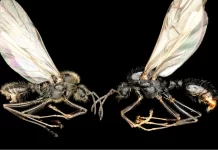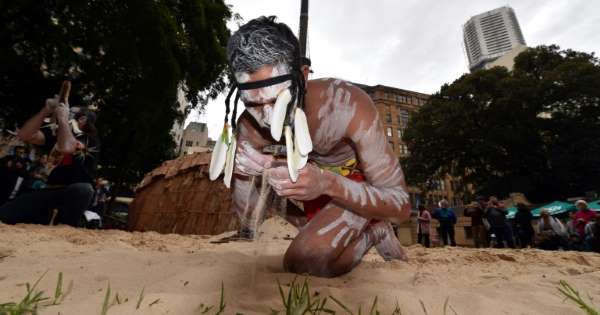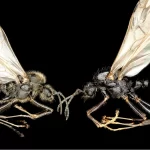Attorney-General Christian Porter says the government will seek to work around a controversial High Court ruling that non-citizens who identify as Aboriginal cannot be deported.
In a split 4-3 decision yesterday, the High Court found Aboriginal people held a special status exempt from immigration laws, after considering the cases of two convicted criminals the government wanted to deport.
New Zealand-born Brendan Thoms and Papua New Guinea-born Daniel Love had their Australian visas cancelled in 2018 after they were jailed for violent assaults and placed in immigration detention pending deportation.
Neither man holds Australian citizenship but both identify as indigenous, and each has one Australian parent. In its ruling, the High Court found Aboriginal Australians could not be considered “aliens” under the Constitution.
The Morrison Government said that “on the face of it”, the decision “has created a new category of persons — neither an Australian citizen under the Australian Citizenship Act, nor a non-citizen”.
Speaking to 6PR today, Mr Porter said while the ruling applied to a very specific group of people, the government was carefully looking at the “broader implications”.
He indicated the government would not back down from its policy of deporting non-citizens who commit crimes. “(The decision) has a clear impact for that group of people and that policy for deporting people who’ve committed serious offences while on a visa and who are non-citizens,” he said.
“We’ll be looking for ways in which we might be able to effect that policy without reliance on the power we were previously relying on, but we’ll look into that.”
The government could take its lead from Justice Stephen Gageler, who wrote in his minority opinion that the “complications and uncertainties” the decision would create “for the maintenance of an orderly national immigration program … might perhaps be addressed by the Commonwealth parliament reverting to the approach of relying on the power conferred by section 51(xxvii) to make laws with respect to ‘immigration and emigration’”.
“Alternatively, the Commonwealth parliament might consider itself obliged to address them through racially targeted legislation enacted under section 51(xxvi) of the Constitution,” he wrote.
“On a correct understanding of the scope of the power conferred by section 51(xix), neither is a course which the Commonwealth parliament ought to be driven to take.”
Conservative commentators have criticised the High Court decision.
Sky News host Andrew Bolt described the ruling as “extraordinary” and warned it will cause “tremendous racial strife”.
“The High Court ruled that people who identify as Aboriginal now have one right that people of any other race do not,” he said last night.
“No one calling themselves Aboriginal can now be expelled by the government from Australia — even if they’re born overseas, even if they aren’t Australian citizens and even if they’re criminals.”
He said the reasons given by the majority were “based on treating people who are before the court not as individuals but as members of some race sharing some supposed similarities common to them all”.
In her opinion, Justice Michelle Gordon wrote that “the indigenous peoples of Australia are the first peoples of this country” who have a “spiritual or metaphysical” connection with “the land and waters” that was “not severed or extinguished by European ‘settlement’”.
Bolt said the ruling was “race-based thinking”.
“This decision … brings us closer to having people who identify as Aboriginal having the right to effectively run their own race-based governments or do things that are beyond Australian law because they say, ‘We’re Aboriginal.’ That to me is a form of racial division that can lead only to tremendous division and strife,” he said.
Meanwhile, Labor MP Linda Burney, the first indigenous woman elected to the House of Representatives, welcomed the “incredibly significant” ruling.
“It reinforces Aboriginal connection country in Australia,” Ms Burney told reporters in Canberra today.
“(It) reaffirms the important connection, the special connection, that Aboriginal people have to Australia and their historical connection.”
Ms Burney encouraged the Morrison Government to push on with a referendum on constitutional recognition and an indigenous voice to parliament.
Morgan Begg, research fellow at the Liberal-aligned think tank the Institute of Public Affairs, said the High Court’s decision “to exclude a specific group from the scope of the constitutional aliens power is the most radical instance of judicial activism in Australian history”.
“The High Court has created a new class of citizenship based according to identity which offends the basic moral principle of racial equality,” Mr Begg said.
“This decision has led to the absurd position that a person can be a non-citizen but not subject to Australia’s migration laws. This is a fundamental challenge to the idea of racial equality as well as the sovereignty of the parliament to decide who can be members of our shared political community.”
While the case was a big victory for Thoms, the court was unable to agree on whether Love was Aboriginal, casting continued uncertainty over his case.
The men are seeking damages for false imprisonment after being placed in immigration detention pending their deportation.
Lawyer Claire Gibbs said the case went far beyond the issue of citizenship. “It’s about who belongs here, who is an Australian national and who is part of the Australian community,” she told reporters outside court yesterday.
“It’s about the use of alien powers, which we believe the government has been using inconsistently, unfairly and, now we’ve proven, unlawfully.”
The decision recognises indigenous connection to country and means Aboriginal Australians can no longer be removed.
Acting immigration minister Alan Tudge said the government was reviewing the decision as it could have implications for migration laws.
“The Department of Home Affairs will consider the best methods to review other cases which may be impacted,” he said in a statement.
Ms Gibbs confirmed yesterday afternoon that Mr Thoms had been released after 501 days in detention.
“Brendan should never have been in detention, and we are thrilled that the federal government have now finally acted to do the right thing and release him following today’s decision,” she said.
“Brendan has had 500 sleepless nights worrying he could be deported at any time and that is now thankfully at an end. He is very happy to have been released and to now be reunited with his family at long last.”
Lawyers are confident they will be able to prove Love’s indigenous background in a future court hearing. He is currently being held on the Gold Coast.





























